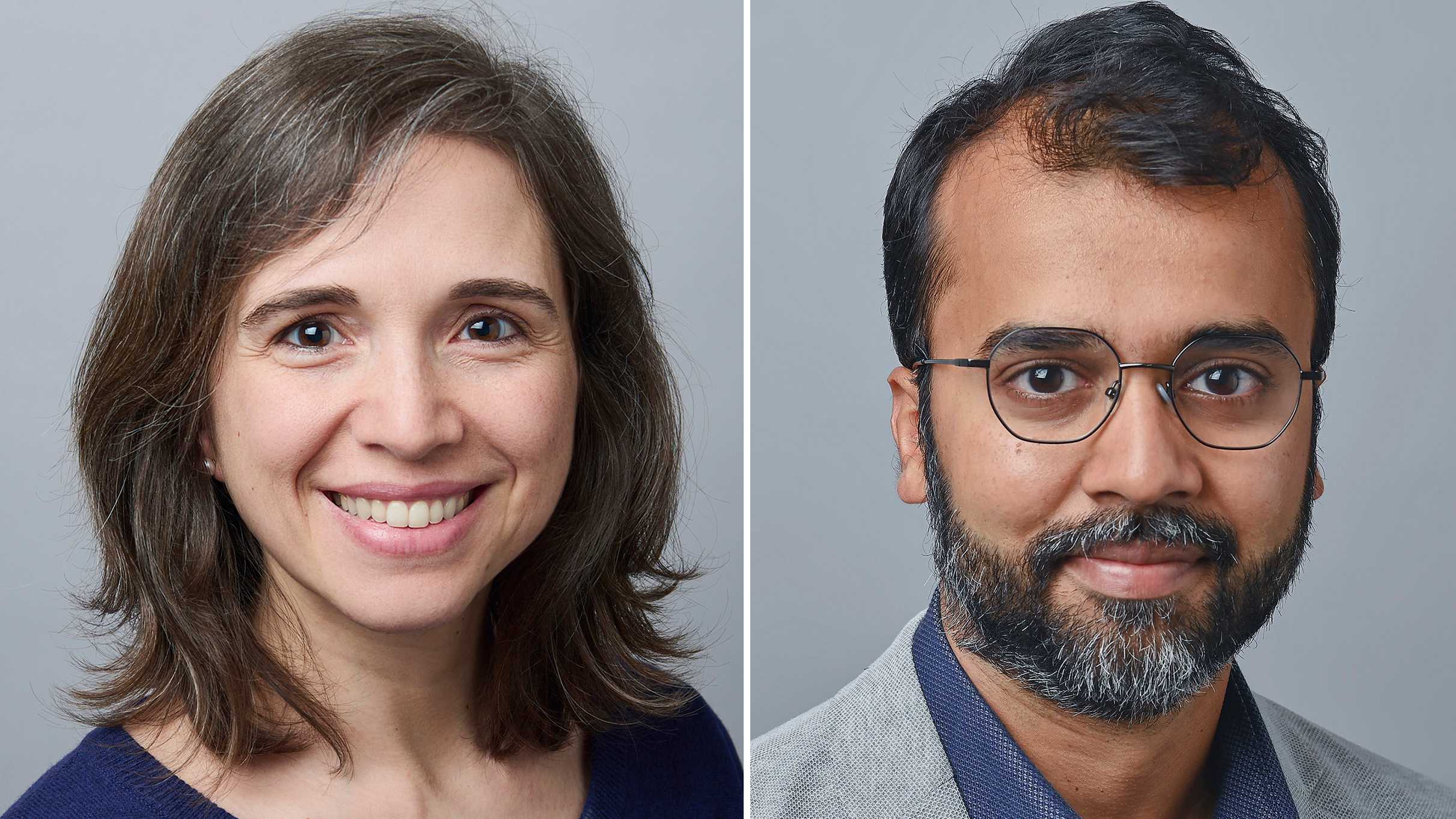SNSF-funded projects start for Elsa Abreu and Puneet Anantha Murthy
The two researchers, who are members of the Institute for Quantum Electronics, were both awarded SNSF Starting Grants.

Last year, the Swiss National Science Foundation (SNSF) awarded nine SNSF Starting Grants to scientists who planned to carry out research at ETH Zurich with projects starting in 2023. The SNSF Starting Grants were offered after researchers at Swiss universities became ineligible to apply for European Research Council (ERC) Starting Grants. The goal of SNSF Starting Grants is to support young scientists with a maximum of 1.8 million Swiss francs per project over a period of five years, enabling early-career researchers to build their own groups and work on their projects independently.
The Institute for Quantum Electronics (IQE) has now welcomed two awardees of the 2022 SNSF Starting Grants: we congratulate Professors Elsa Abreu and Puneet Anantha Murthy on their winning proposals.
Working under pressure
Elsa Abreu aims at combining terahertz radiation with pressure to study the dynamics of quantum materials. Some of these systems are known for their promising properties and unexpected behaviours, such as multiferroics and Mott insulators; understanding the complex interplay between the many degrees of freedom that determine their macroscopic properties is crucial for material design, which requires knowledge of which 'knobs' to turn to shape the material response as desired. Abreu is interested in approaches to quantum material characterisation that allow for controlled system excitation. This is why she uses terahertz frequencies, which can excite a system while keeping it close to its ground state, and why she wants to add a diamond anvil cell to her terahertz pump-probe setup. By changing the pressure conditions on a sample material, she will be able to study how pressure regulates the material's ground state. And unlike changes in temperature or doping, which affect multiple degrees of freedom simultaneously, "the pressure knob is a clean knob, more targeted towards one specific response of the material," says Abreu.
Abreu is looking for PhD students and postdoctoral researchers: get in touch with her to learn more about her experimental project and discuss job opportunities.
Bringing photons together
Puneet Anantha Murthy wishes to tackle a question that has been investigated theoretically for a couple of decades: is it possible to build collective phases of photons? Strongly interacting photons could lead more naturally to photonic counterparts to electronic devices such as transistors, and the added benefit of working with photons would be lower energy consumption. Realising collective phases of photons is non-trivial, however, because it would require strong single-photon nonlinearities and large numbers of identical single-photon emitters. Murthy plans to build on his recent experimental work demonstrating all-electrical confinement of optically active excitons in two-dimensional semiconductors, where nanostructured gate electrodes were used to achieve quantum-dot-like exciton confinement. Self-assembled or colloidal quantum dots are excellent single-photon sources, but their traditional fabrication processes are not scalable to the level that would be required for accessing strongly correlated photonic phases. Murthy expects single-photon emitters based on electrical exciton confinement to be more tunable and scalable. "One part of the setup is about controlling the motion of photons, the other is about bringing in particle interactions," he says: he envisages an array of a hundred identical quantum-dot sources, each placed in an optical cavity for emission control, with strong exciton-mediated interactions between photons. This setup may enable Murthy to enter the regime of quantum many-body photonics and look for collective photonic phases.
Murthy is keen to hear from prospective PhD students and postdoctoral researchers with expertise in optics, electronics and materials – get in touch with him to know more.
